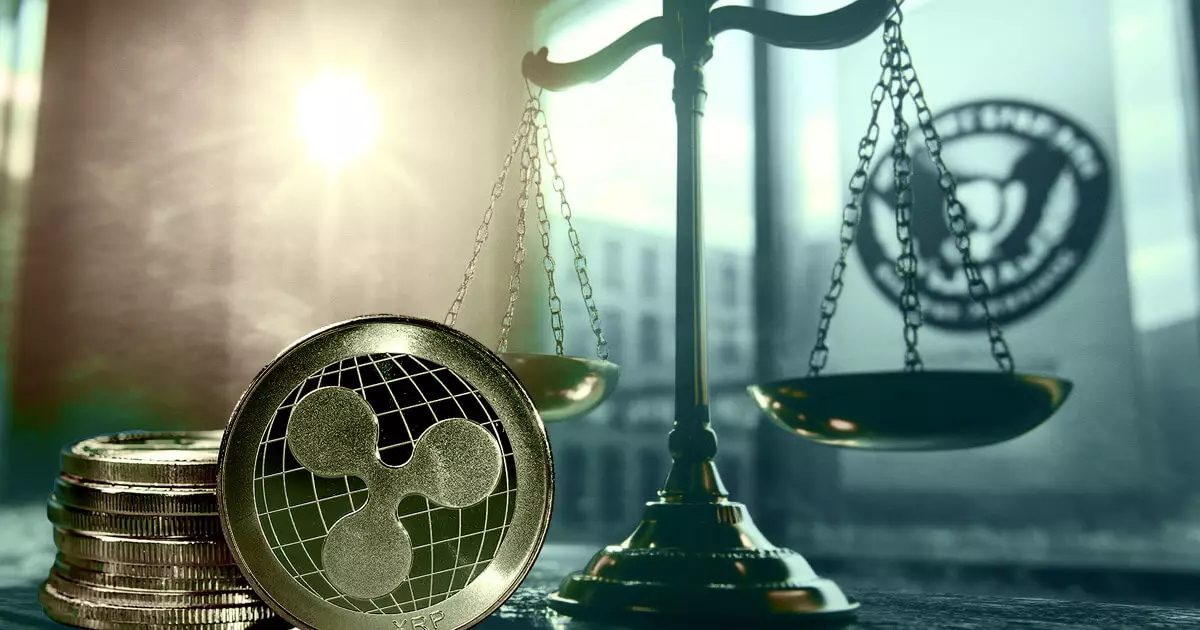The ongoing legal case involving Ripple Labs and the U.S. Securities and Exchange Commission (SEC) has been closely monitored, sparking intense discussions within the cryptocurrency community. This legal confrontation has far-reaching implications for both the crypto industry and regulatory frameworks. As each party navigates complex legal terrains, understanding the specifics of these developments is critical.
On October 17, 2023, the SEC filed a Civil Appeal Pre-argument statement (Form C) to contest specific components of Judge Analisa Torres’s previous ruling that had swung in favor of Ripple Labs. Last year, the judge concluded that while Ripple’s sales of XRP to retail investors did not infringe on U.S. securities laws, the sales to institutional investors did. This bifurcation raised a multitude of questions about the security status of XRP and highlighted the intricacies of digital asset regulations.
In its latest filing, the SEC made it clear that it does not contest the favorable ruling regarding retail sales through exchanges; rather, the agency is honing in on the nuances of Ripple’s sales strategies. The SEC aims to appeal primarily concerning Ripple’s programmatic sales of XRP on trading platforms and the distribution practices of the cryptocurrency to employees and other stakeholders. This precision indicates the SEC’s attempt to carve out legal precedents that would more squarely categorize ongoing sales as securities.
Moreover, the SEC is also extending its scrutiny to Ripple’s top executives—Brad Garlinghouse and Chris Larsen—accusing them of complicity in questionable XRP sales. They intend to challenge the legality of Garlinghouse’s and Larsen’s actions in promoting and selling XRP, which introduces a personal accountability dimension that may lead to further ramifications.
The filing stipulates that these critical legal questions are to be reviewed “de novo,” meaning that the appellate court will bypass the lower court’s determinations. The implications of this legal doctrine are significant; it allows for a fresh examination of the facts and the law without regard to existing judgments. Such a framework can lead to new interpretations of what constitutes a security within the modern digital asset landscape.
The SEC’s focus on these elements reflects a broader regulatory trend of clarifying which digital assets might fall under the purview of existing securities laws. However, it is telling that the SEC chose not to appeal the $125 million monetary penalty initially levied against Ripple or focus on disgorgement claims, which could point to a strategic decision aimed at avoidance of prolonged legal proceedings over these already settled matters.
The timing of the SEC’s filing has sparked considerable speculation among crypto enthusiasts and legal analysts alike. Ripple’s Chief Legal Officer, Stuart Alderoty, remarked that the lack of surprise in the SEC’s approach illuminates the unwavering stance that XRP is deemed not a security—an assertion that remains the crux of Ripple’s argument. His assertion reinforces Ripple’s commitment to its legal position and suggests the company’s readiness to file a cross-appeal in response to the SEC’s moves.
The ramifications of this ongoing legal tussle stretch beyond Ripple or the SEC; they could shape how cryptocurrencies are regulated in the United States. If the appellate court sides with the SEC, a precedent may be set that categorizes a broader range of digital assets as securities, potentially subjecting them to enhanced regulatory scrutiny and compliance requirements.
As the legal waters continue to shift, this case may serve as a bellwether for forthcoming legislation regarding cryptocurrencies. The uncertainty surrounding regulatory frameworks poses challenges for existing and prospective crypto projects. Ripple’s situation mirrors the broader anxiety in the crypto community around regulatory clarity, which is essential for fostering innovation while ensuring consumer protection.
The result of this appeal could also impact institutional investment in cryptocurrency markets, as firms assess their risk profiles in the wake of enhanced regulatory scrutiny. Conversations around compliance and legal responsibilities surrounding digital asset holdings will undoubtedly gain momentum as the industry watches the developments in the Ripple case unfold.
As it stands, the outcome of the Ripple vs. SEC case is poised not only to influence the future of XRP but could set a critical precedent affecting the entire cryptocurrency ecosystem, making it essential to monitor the evolving landscape.















